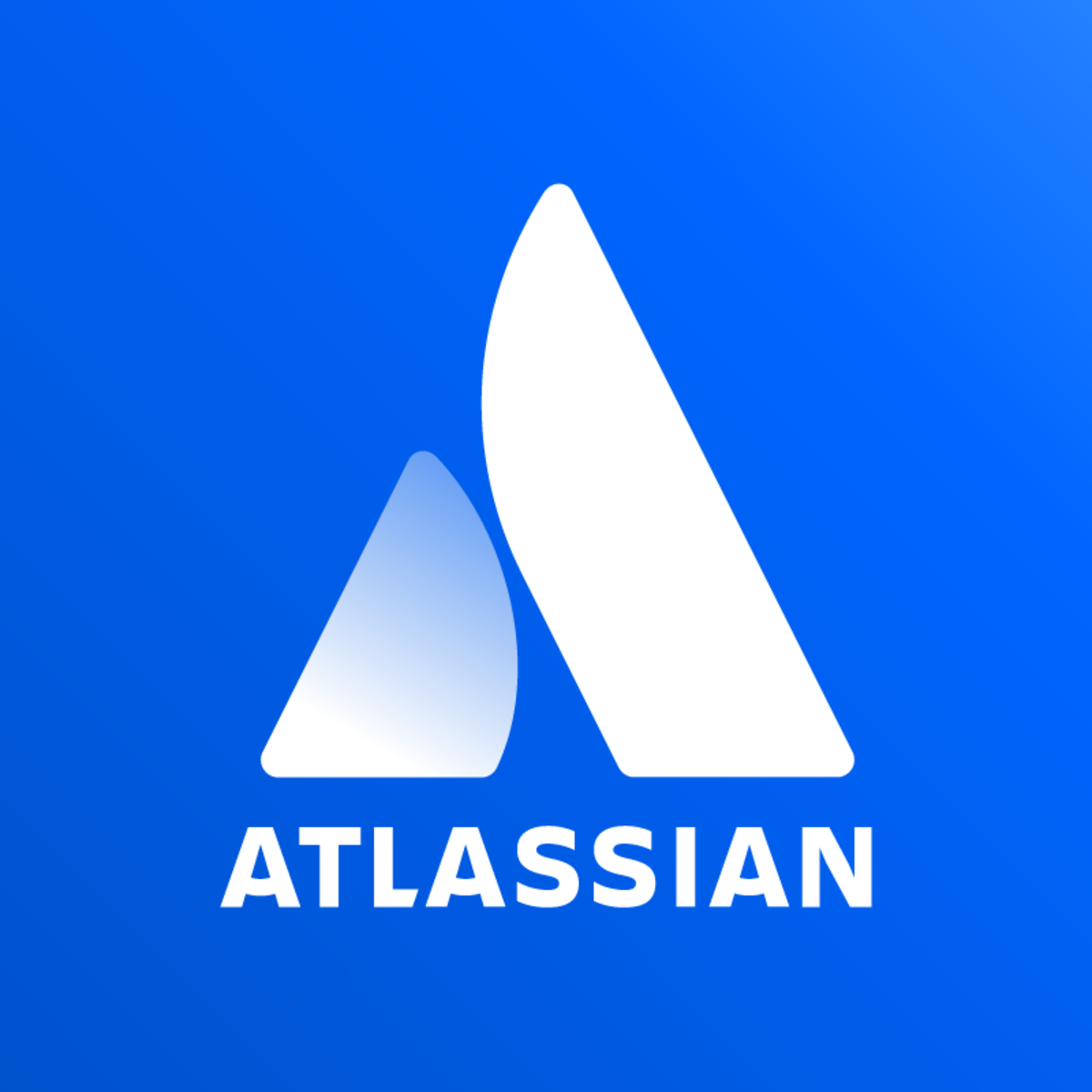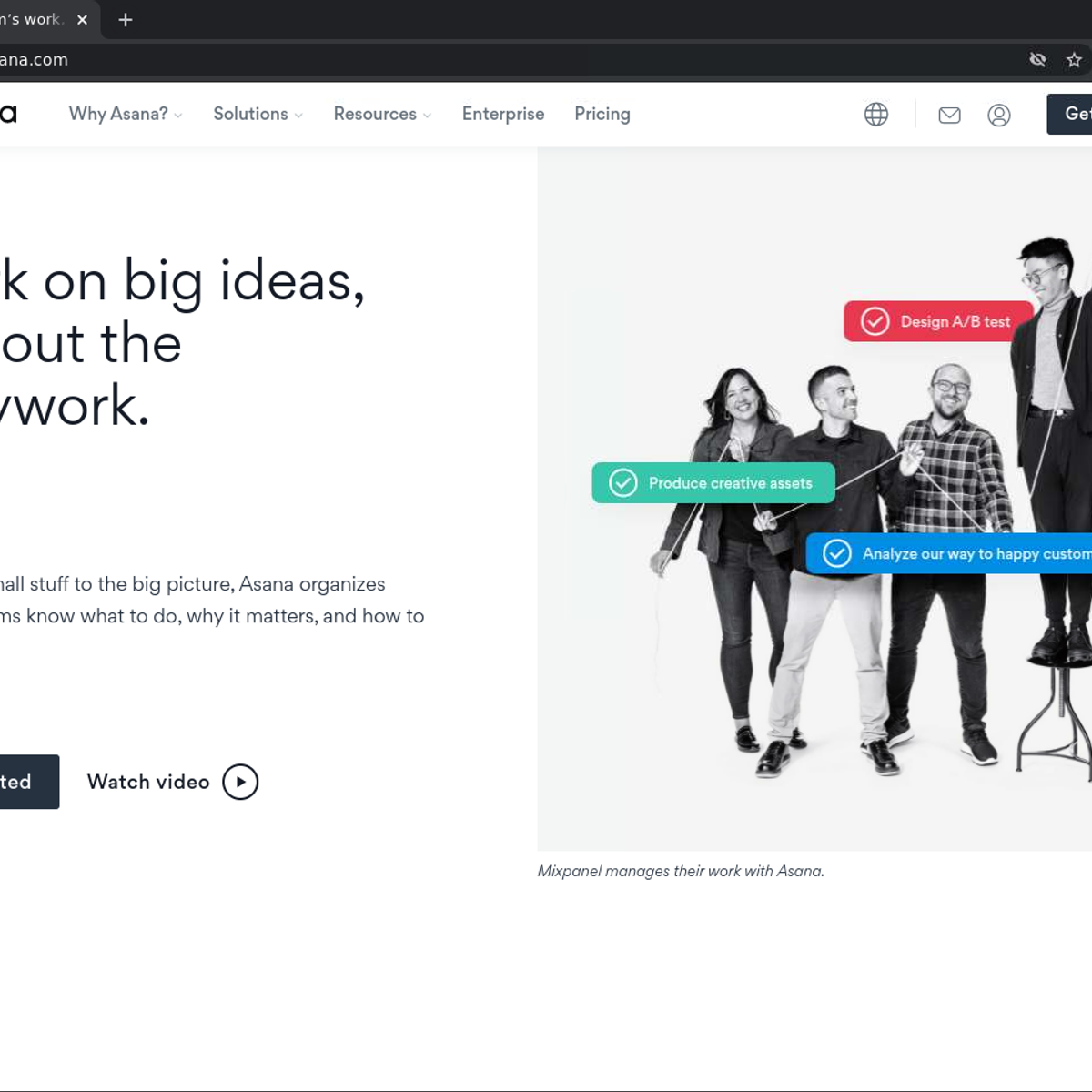Agile Project Manager
Agile Project Manager: A Comprehensive Career Guide
An Agile Project Manager (APM) plays a crucial role in guiding projects towards successful completion using Agile methodologies. Unlike traditional project management, which often relies on detailed upfront planning and sequential execution, Agile emphasizes flexibility, collaboration, customer feedback, and rapid iterations. APMs facilitate this dynamic process, ensuring teams deliver value efficiently and adapt quickly to changing requirements.
Working as an APM can be incredibly engaging. You'll find yourself at the heart of innovation, helping teams navigate complex challenges and deliver cutting-edge products or services. The role often involves fostering a collaborative team environment and communicating frequently with stakeholders, making it a highly interactive and people-centric career. The constant learning and adaptation inherent in Agile keep the work stimulating and rewarding.
Introduction to Agile Project Management
This section delves into the core concepts of Agile Project Management, providing a foundation for understanding the role and its context.
What is an Agile Project Manager?
An Agile Project Manager is a leader who champions Agile principles and practices within a project team. Their primary goal is to facilitate the team's progress, remove impediments, and ensure that the project delivers value incrementally and frequently. They act as a servant leader, coach, and facilitator, rather than a directive manager.
Core Agile principles, outlined in the Agile Manifesto, guide the APM's approach. These include valuing individuals and interactions over processes and tools, working software over comprehensive documentation, customer collaboration over contract negotiation, and responding to change over following a rigid plan. APMs embody these values in their daily work.
Frameworks like Scrum and Kanban provide specific structures and practices for implementing Agile. Scrum uses time-boxed iterations called sprints, while Kanban focuses on continuous flow and visualizing workflow. An APM is often proficient in one or more of these frameworks, tailoring their application to the team's needs.
Agile vs. Traditional Project Management
Traditional project management, often called Waterfall, follows a linear path: define requirements, design, build, test, deploy. Each phase must be completed before the next begins. This approach works well for projects with stable requirements and predictable outcomes.
Agile management, conversely, is iterative and incremental. Projects are broken into smaller cycles, allowing for frequent feedback and adaptation. Requirements can evolve, and the team continuously delivers functional pieces of the product. This suits projects where requirements are unclear or likely to change, common in software development and innovation.
The key difference lies in philosophy and structure. Traditional PM emphasizes control and prediction, while Agile prioritizes adaptation and value delivery. APMs foster flexibility and collaboration, whereas traditional PMs focus on managing scope, schedule, and budget according to a pre-defined plan.
Understanding these distinctions is crucial for choosing the right approach. Many organizations now use hybrid models, blending elements of both methodologies to fit specific project contexts. You can explore project management concepts further on OpenCourser's Management category page.
Where Do Agile Project Managers Work?
Initially prominent in the software development industry, Agile methodologies and the APM role have expanded significantly. Today, APMs are sought after in various sectors, including IT, finance, marketing, healthcare, manufacturing, and even government agencies.
Technology companies remain major employers, leveraging Agile to accelerate software delivery and innovation cycles. Financial institutions use Agile to develop new fintech products and improve customer experiences. Marketing teams adopt Agile for campaign management and rapid content creation.
Healthcare organizations apply Agile principles to improve patient care processes and manage complex research projects. Essentially, any industry facing rapid change, complex problems, or the need for faster value delivery can benefit from Agile practices and the expertise of an APM.
The versatility of Agile means APMs can find opportunities across diverse organizational landscapes, from startups to large enterprises. The demand often reflects an organization's commitment to digital transformation and operational efficiency.
The Evolution of Agile
Agile methodologies emerged in the 1990s as a response to the limitations of traditional, heavyweight software development processes. Early pioneers sought more lightweight, flexible approaches to handle the increasing complexity and changing requirements of software projects.
The seminal moment came in 2001 when 17 software developers gathered in Snowbird, Utah. They collaboratively authored the Manifesto for Agile Software Development, codifying the core values and principles that underpin various Agile frameworks like Scrum, Extreme Programming (XP), and Feature-Driven Development (FDD).
Since then, Agile has evolved beyond software. Frameworks like Lean, Kanban, and Scaled Agile Framework (SAFe) have gained prominence, adapting Agile principles for different contexts, including large-scale enterprise projects and non-IT domains. The role of the APM has similarly evolved, requiring a broader skill set encompassing coaching, facilitation, and strategic alignment.
These books offer deeper insights into the origins and core ideas behind Agile and Scrum, written by some of the key figures in the movement.
Roles and Responsibilities of an Agile Project Manager
Understanding the day-to-day activities and core functions of an APM provides clarity on what the job entails.
Daily Tasks and Core Activities
An APM's typical day is dynamic and centered around facilitating team progress. Key activities often include leading or participating in daily stand-up meetings, where team members share progress, plans, and obstacles. Removing these obstacles, or "impediments," is a primary responsibility.
Sprint planning is another critical task, involving collaboration with the Product Owner and development team to define the work to be accomplished in the upcoming sprint. Backlog grooming, or refinement, ensures the product backlog is well-understood, estimated, and prioritized for future sprints.
At the end of each sprint, the APM facilitates sprint reviews to demonstrate completed work to stakeholders and gather feedback. They also lead sprint retrospectives, guiding the team to reflect on their process and identify areas for improvement. These ceremonies are central to the iterative nature of Agile.
These courses provide foundational knowledge and practical skills related to Agile frameworks and core APM tasks.
Facilitating Team Collaboration
Agile thrives on collaboration, and the APM acts as the chief facilitator. They foster an environment where cross-functional team members – developers, testers, designers, analysts – can work together effectively towards a common goal.
This involves promoting open communication, active listening, and constructive conflict resolution within the team. APMs ensure that everyone understands the project vision and their role in achieving it. They may use various techniques and tools to enhance collaboration, especially in distributed or remote team settings.
Building trust and psychological safety is paramount. When team members feel safe to voice concerns, share ideas, and admit mistakes, the team becomes more resilient and innovative. The APM models and encourages these behaviors, championing a culture of continuous improvement and shared ownership.
This course focuses specifically on the leadership aspects crucial for managing and facilitating Agile teams.
Managing Stakeholder Communication
Effective communication with stakeholders – including customers, business leaders, and other departments – is vital for project success. The APM serves as a key liaison, ensuring stakeholders are informed about progress, risks, and changes.
This involves translating technical details into business-friendly language and managing expectations regarding timelines and deliverables. APMs facilitate regular check-ins, demos (like sprint reviews), and feedback sessions to ensure alignment between the team's work and stakeholder needs.
Transparency is a cornerstone of Agile communication. APMs often utilize information radiators, such as visible Kanban boards or burndown charts, to provide real-time insights into project status. Proactively addressing concerns and managing scope changes through clear communication helps maintain stakeholder trust and support.
Measuring Agile Project Success
Unlike traditional projects that heavily rely on meeting initial scope, schedule, and budget targets, Agile success is measured differently. Key metrics focus on value delivery, team performance, and adaptability.
Common Agile metrics include velocity (the amount of work a team completes per sprint), cycle time (time taken from starting work on an item to its completion), and lead time (time from request to delivery). These help teams understand their capacity and identify bottlenecks.
Customer satisfaction, business value delivered, and team morale are also crucial indicators of success. APMs use these metrics not for rigid control, but to facilitate conversations about improvement during retrospectives and to demonstrate progress to stakeholders in meaningful ways.
This book delves into planning and estimation techniques used in Agile environments.
Formal Education Pathways to Agile Project Management
While practical experience is highly valued, formal education and certifications can provide a strong foundation and accelerate career growth.
Relevant University Degrees
There isn't one specific degree required to become an APM, but several fields provide relevant foundational knowledge. Degrees in Business Administration, Management Information Systems (MIS), or Computer Science are common starting points.
Business degrees offer understanding of organizational dynamics, strategy, and finance, crucial for aligning projects with business goals. MIS programs blend business acumen with technical understanding, helpful for managing IT-focused projects. Computer Science degrees provide deep technical insight, valuable when managing software development teams.
Other relevant fields include engineering, communications, or even psychology, as the role demands strong problem-solving, communication, and interpersonal skills. The key is supplementing any degree with specific knowledge of project management principles and Agile methodologies.
Graduate Programs and Specializations
For those seeking advanced knowledge, Master's degrees in Project Management, Business Administration (MBA) with a relevant concentration, or Information Systems can be beneficial. Some universities now offer specialized tracks or certificates focusing specifically on Agile methodologies.
These programs often delve deeper into leadership, organizational change management, risk management, and advanced Agile frameworks like SAFe. They can be particularly useful for individuals aiming for leadership roles like Agile Coach or Program Manager.
Doctoral (PhD) research in areas related to Agile methodologies might explore topics like organizational agility, team dynamics in Agile environments, the effectiveness of specific Agile practices, or the integration of AI in project management. Such research contributes to the evolution of the field but is typically pursued by those interested in academia or high-level consulting.
The Role of Certifications
Certifications play a significant role in the Agile Project Management field, often serving as proof of knowledge and commitment. They can be particularly valuable for career changers or those looking to formalize their experience.
Popular entry-level certifications include the Certified ScrumMaster (CSM) from Scrum Alliance and the Professional Scrum Master (PSM I) from Scrum.org. For those with existing project management experience looking to specialize in Agile, the Project Management Institute's Agile Certified Practitioner (PMI-ACP) is highly regarded.
Other certifications exist for specific roles (like Certified Scrum Product Owner - CSPO), frameworks (like SAFe certifications), or advanced practitioners (like Certified Scrum Professional - CSP). While not always mandatory, certifications can enhance credibility and competitiveness in the job market. Many employers view them as a baseline qualification.
These courses are specifically designed to help you prepare for prominent Agile certifications.
This book is a well-regarded resource for preparing for the PMI-ACP exam.
Online Learning and Skill Development
For many aspiring APMs, especially those transitioning careers or supplementing formal education, online learning offers a flexible and accessible pathway.
Learning Agile Through Online Courses
Online platforms provide a wealth of courses covering Agile principles, frameworks, and tools. These can range from introductory overviews to deep dives into specific methodologies like Scrum or Kanban, and preparation for certifications like the PMI-ACP or CSM.
The flexibility of online learning allows individuals to study at their own pace, fitting education around existing work or personal commitments. This makes it a feasible option for career pivoters who need to acquire new skills without necessarily returning to full-time traditional education.
Platforms like OpenCourser aggregate courses from various providers, allowing learners to compare options, read reviews, and find courses that match their learning style and budget. Many courses offer certificates upon completion, which can be added to resumes and professional profiles.
These courses offer comprehensive introductions and practical applications of Agile and Scrum, suitable for self-paced learning.
Bridging Theory and Practice
While online courses provide essential theoretical knowledge, practical application is crucial for becoming an effective APM. Simply understanding Agile concepts is different from facilitating a challenging retrospective or navigating conflicting stakeholder demands.
Seek opportunities to apply what you learn. If you're currently employed, look for chances to introduce Agile practices within your existing role or volunteer for projects using Agile methods. Even small steps, like visualizing workflow on a simple Kanban board or running short, iterative cycles for a task, build practical understanding.
Connecting with Agile communities, attending meetups (virtual or in-person), and reading blogs or case studies can also bridge the gap between theory and real-world application. Hearing about others' experiences provides valuable context and practical insights.
This guide provides practical advice on retrospectives, a key Agile practice.
Building a Portfolio with Projects
For those without direct work experience, creating portfolio projects can demonstrate skills to potential employers. This might involve managing a personal project using Scrum, complete with backlog, sprints, and retrospectives.
Consider developing mock case studies where you outline how you would apply Agile principles to solve a specific business problem. Some online courses include capstone projects designed to simulate real-world scenarios, providing tangible artifacts for your portfolio.
You could also contribute to open-source projects that use Agile methodologies or volunteer your skills for a non-profit organization. Documenting your process, challenges faced, and outcomes achieved in these projects provides concrete evidence of your capabilities.
These project-based courses allow learners to gain hands-on experience with Agile tools and techniques, creating outputs suitable for a portfolio.
Supplementing Education with Training
Online learning can effectively supplement formal degrees or existing professional experience. If your background is technical, courses on communication, leadership, and business acumen can round out your skill set. If you come from a non-technical background, courses on software development lifecycles or specific industry domains might be beneficial.
Specialized training in areas like conflict resolution, advanced facilitation techniques, or specific Agile tools (like Jira or Azure DevOps) can provide a competitive edge. Continuous learning is inherent in Agile, and staying updated with new practices and tools is essential throughout an APM career.
Consider using OpenCourser's list feature to curate your own learning path, combining courses that address your specific knowledge gaps and career goals. Our Learner's Guide also offers tips on structuring self-learning effectively.
Career Progression for Agile Project Managers
Understanding the typical career trajectory helps in setting realistic goals and planning long-term development.
Entry-Level Agile Roles
Direct entry into an "Agile Project Manager" role might require prior project management or significant team leadership experience. Many individuals start in related roles and transition into APM positions.
Common entry points include roles like Scrum Master, which focuses specifically on facilitating a Scrum team and upholding the framework. Junior Project Manager or Project Coordinator roles, even in traditional environments, can provide foundational experience in managing tasks, timelines, and stakeholders.
Other paths include starting as a Business Analyst, QA Analyst, or even a Developer on an Agile team, gaining firsthand experience with the process before moving into a facilitative leadership role. Demonstrating strong communication, collaboration, and problem-solving skills is key regardless of the starting point.
These courses cover foundational Scrum Master skills, a common entry point into Agile leadership.
Advancing to Senior APM Roles
Promotion to a Senior Agile Project Manager typically requires a proven track record of successfully delivering complex projects, mentoring junior team members, and demonstrating strong leadership capabilities. Senior APMs often handle larger, more strategic initiatives.
Key criteria include deep expertise in multiple Agile frameworks, the ability to tailor methodologies to specific contexts, and proficiency in handling challenging stakeholder dynamics and organizational impediments. Experience in scaling Agile practices across multiple teams might also be required.
Strong strategic thinking, excellent communication skills, and the ability to influence without direct authority become increasingly important. Senior APMs may also contribute to improving Agile practices within the wider organization.
Leadership Pathways Beyond APM
Experienced APMs have several potential leadership paths. One common route is becoming an Agile Coach, focusing on mentoring teams and leaders to improve their Agile capabilities and fostering an Agile mindset across the organization.
Another path leads to roles like Program Manager or Portfolio Manager, overseeing multiple related projects or initiatives and ensuring alignment with strategic business objectives. Some may move into Director of Project Management Office (PMO) roles, setting standards and governance for project management practices within the company.
These leadership positions require a blend of deep Agile expertise, strong people management skills, strategic vision, and the ability to drive organizational change. They often involve working closely with senior executives.
Lateral Moves and Alternative Paths
The skills developed as an APM are transferable to various other roles. A common lateral move is into Product Management or Product Owner roles, leveraging the understanding of customer needs, backlog management, and value delivery.
Some APMs transition into consulting, advising different organizations on Agile adoption and transformation. Others might move into Operations Management, applying principles of efficiency and continuous improvement to business processes.
For those with a technical background, roles like Development Manager or Technical Lead might be appealing. The combination of technical understanding and project leadership skills is highly valuable. Entrepreneurship is another possibility, applying Agile principles to build and scale a new venture.
Tools and Techniques in Agile Project Management
Proficiency with specific frameworks, software tools, and techniques is essential for effective Agile Project Management.
Popular Agile Frameworks
While Agile is a mindset, several frameworks provide structure. Scrum is arguably the most popular, focusing on iterative development within fixed-length sprints, guided by roles like Scrum Master and Product Owner.
Kanban is another widely used framework, emphasizing workflow visualization, limiting work-in-progress (WIP), and managing flow. It's highly adaptable and often used for continuous delivery environments or operational teams.
For larger organizations, frameworks like Scaled Agile Framework (SAFe), Large-Scale Scrum (LeSS), or Disciplined Agile (DA) provide guidance on coordinating multiple Agile teams working on complex products or systems. Lean principles, focusing on eliminating waste and maximizing value, also heavily influence many Agile practices.
This course offers an overview of SAFe, a popular scaling framework.
Software Tools for Agile Teams
Numerous software tools support Agile workflows. Jira by Atlassian is perhaps the most dominant platform, offering extensive features for backlog management, sprint planning, issue tracking, and reporting for Scrum and Kanban teams.
Trello provides a simpler, visual Kanban board experience, often favored by smaller teams or for managing less complex workflows. Asana and Monday.com are other popular project management tools that support Agile practices.
Microsoft's Azure DevOps (formerly VSTS) offers an integrated suite of tools for planning, development, testing, and deployment, including robust support for Agile and Scrum processes. Choosing the right tool often depends on team size, complexity, existing infrastructure, and specific needs.
These courses provide hands-on training with some of the most popular Agile software tools.
Essential APM Techniques
Beyond specific frameworks and tools, APMs employ various techniques. Effective facilitation skills are crucial for running productive meetings, workshops, and ceremonies like retrospectives and sprint planning.
Conflict resolution techniques help navigate disagreements within the team or with stakeholders constructively. Prioritization methods, such as MoSCoW (Must have, Should have, Could have, Won't have) or value-based ranking, help the team focus on the most important work.
Techniques for visualizing workflow (like Kanban boards), managing dependencies between teams, and effective user story mapping are also part of the APM's toolkit. Continuous learning and adapting techniques based on context are key.
These books explore user stories, a fundamental technique in Agile requirements gathering and planning.
Adapting to Hybrid Environments
Many organizations don't operate in purely Agile environments. APMs often need to navigate hybrid situations where Agile teams interact with traditional departments or projects following Waterfall methodologies.
This requires skill in bridging communication gaps between different ways of working. APMs might need to translate Agile progress metrics into formats understandable by traditional stakeholders or align sprint cycles with larger, phase-gated project plans.
Techniques for managing dependencies across Agile and Waterfall teams become important. Flexibility and pragmatism are key – rigidly adhering to Agile "purity" may not be effective. The focus remains on facilitating value delivery, even within complex, mixed-methodology landscapes.
These courses touch upon managing projects using various approaches, including hybrid models.
Agile Project Management in Industry Applications
Examining how Agile is applied in different sectors highlights its versatility and impact.
Agile in Technology and Software
The tech industry remains the heartland of Agile. Software development teams widely use Scrum, Kanban, and XP to deliver products faster, respond to market changes, and improve code quality through iterative development and continuous feedback loops.
APMs in tech facilitate development sprints, manage releases, coordinate between development, QA, and operations (DevOps), and ensure alignment with product roadmaps. The focus is on shipping functional software frequently and incorporating user feedback rapidly.
Startups often embrace Agile and Lean principles (Lean Startup) from inception to validate ideas quickly and pivot based on market learning. Large tech companies often implement scaled Agile frameworks like SAFe to coordinate work across hundreds or thousands of engineers.
Agile Beyond Tech: Finance, Healthcare, and More
Financial services firms use Agile to accelerate the development of digital banking features, trading platforms, and compliance solutions. APMs help navigate regulatory constraints while fostering innovation and faster response to market demands.
In healthcare, Agile methods are applied to improve hospital workflows, develop patient management software, and manage clinical research projects. The iterative approach allows for adaptation based on patient outcomes or research findings.
Marketing teams use Agile for campaign management, content creation, and A/B testing, enabling quicker adjustments based on performance data. Manufacturing companies sometimes adopt Lean and Agile principles to optimize production lines and supply chains. The adaptability of Agile makes it relevant across diverse operational contexts.
Impact on Innovation and Time-to-Market
A primary driver for Agile adoption is the desire to accelerate innovation and reduce time-to-market. By breaking large projects into smaller increments and delivering functional pieces frequently, organizations can get products or features to users faster.
This rapid feedback loop allows teams to validate assumptions, incorporate user insights, and adjust direction early, reducing the risk of building the wrong thing. APMs play a key role in facilitating this cycle of build-measure-learn, fostering a culture where experimentation and adaptation are encouraged.
Studies by organizations like McKinsey often highlight the link between organizational agility and improved performance metrics, including faster product launches and increased customer satisfaction. Agile enables organizations to respond more effectively to competitive pressures and evolving market needs.
Challenges in Scaling Agile
While Agile works well for individual teams, scaling it across large enterprises presents significant challenges. Coordinating dependencies between dozens or hundreds of teams requires robust frameworks (like SAFe or LeSS) and careful planning.
Maintaining alignment with overall business strategy across numerous autonomous teams can be difficult. Traditional organizational structures, budgeting processes, and cultural resistance can impede enterprise-wide Agile transformation.
APMs involved in scaling efforts need strong skills in organizational change management, stakeholder alignment, and program-level coordination. They often work closely with Agile Coaches and leadership to navigate these complexities and foster a supportive ecosystem for scaled Agile practices.
Challenges Facing Agile Project Managers
While rewarding, the role of an APM comes with its own set of challenges that require resilience and adaptability.
Managing Distributed and Remote Teams
The rise of remote work has added complexity to Agile practices. Facilitating collaboration, maintaining team cohesion, and ensuring effective communication can be more challenging when team members are geographically dispersed.
APMs need to master virtual collaboration tools and techniques. Running engaging remote stand-ups, retrospectives, and planning sessions requires deliberate effort. Building trust and psychological safety in a remote setting demands proactive communication and empathy.
Time zone differences, varying home working environments, and potential feelings of isolation among remote team members are practical hurdles APMs must help teams navigate. Adapting Agile ceremonies for effective remote participation is an ongoing challenge.
Navigating Organizational Impediments
Agile teams often operate within larger organizations that may still follow traditional structures and processes. This can create friction and impediments that are outside the team's direct control.
APMs frequently encounter challenges related to hierarchical decision-making, slow approval processes, rigid budgeting cycles, or resistance to change from other departments. A significant part of the role involves identifying these organizational impediments and working with leadership to address them.
This requires negotiation skills, political savvy, and persistence. Effectively escalating issues and advocating for the changes needed to support Agile ways of working is a critical, yet often difficult, aspect of the job.
Balancing Flexibility and Compliance
Agile emphasizes adapting to change, but many industries face strict regulatory requirements or compliance standards (e.g., finance, healthcare). Balancing Agile's inherent flexibility with the need for documentation, traceability, and adherence to external rules can be challenging.
APMs must find ways to integrate compliance activities seamlessly into the Agile workflow without stifling the team's speed or adaptability. This might involve tailoring processes, leveraging specific tools for automated documentation, or working closely with compliance experts.
Ensuring that the team understands and meets necessary regulatory obligations while still embracing Agile principles requires careful judgment and clear communication. It's a tightrope walk between agility and control.
Addressing Team Burnout
The fast-paced, iterative nature of Agile can sometimes lead to team burnout if not managed carefully. Constant pressure to deliver quickly, frequent context switching, and demanding deadlines can take a toll on team members.
APMs play a crucial role in protecting the team's sustainable pace. This involves ensuring realistic sprint commitments, advocating against scope creep during sprints, encouraging breaks, and fostering a culture where team members feel comfortable raising concerns about workload.
Recognizing early signs of burnout and facilitating open discussions about workload and well-being during retrospectives are important responsibilities. Promoting work-life balance and sustainable practices is essential for long-term team health and productivity.
The Future of Agile Project Management
The field of Agile Project Management continues to evolve, influenced by technological advancements and changing business landscapes.
Integration with AI and Machine Learning
Artificial Intelligence (AI) and Machine Learning (ML) are beginning to impact Agile practices and tools. AI-powered analytics can provide deeper insights into team performance, predict potential bottlenecks, and automate reporting tasks.
ML algorithms might assist in estimating story points more accurately or optimizing sprint planning based on historical data. AI could also enhance collaboration tools with features like automated meeting summaries or sentiment analysis.
APMs will need to understand how to leverage these technologies effectively, interpreting AI-driven insights and integrating them into their decision-making processes. The focus will likely shift towards more data-informed Agile coaching and facilitation.
Explore the intersection of technology and business on OpenCourser's Technology page.
Influence of DevOps and Continuous Delivery
The close relationship between Agile development and DevOps practices (integrating development and IT operations) will likely continue to strengthen. Continuous Integration (CI) and Continuous Delivery/Deployment (CD) pipelines automate testing and release processes, enabling even faster feedback loops.
APMs increasingly need to understand DevOps principles and tools to facilitate seamless workflows from development through to production. The focus shifts towards optimizing the entire value stream, not just the development phase.
This integration emphasizes automation, collaboration across functional silos (Dev, QA, Ops), and a culture of shared responsibility for delivering and operating software reliably.
Global Demand and Market Trends
The demand for skilled Agile practitioners, including APMs and Scrum Masters, remains strong globally across various industries. As more organizations embark on digital transformations and seek greater adaptability, the need for Agile leadership continues to grow.
According to reports from organizations like the Project Management Institute (PMI) and industry analysts, roles requiring Agile skills consistently appear in lists of high-demand occupations. Remote work trends may further expand opportunities globally.
However, the specific nature of the role may continue to evolve. There's ongoing debate about the distinction between Project Managers, Scrum Masters, and Product Owners, and how responsibilities are distributed. Staying adaptable and continuously learning remains crucial for long-term career relevance.
Ethical Considerations in Agile
As Agile becomes more pervasive, ethical considerations gain importance. Prioritization decisions made in backlog grooming can have significant impacts on users or society. APMs may face dilemmas regarding balancing business value with user well-being or environmental sustainability.
Transparency, a core Agile value, needs careful handling regarding sensitive data or intellectual property. Ensuring fairness in team workload distribution and avoiding practices that lead to excessive pressure or burnout are also ethical responsibilities.
APMs need to cultivate ethical awareness and facilitate discussions within their teams and with stakeholders about the potential impacts of their work. Promoting responsible innovation and decision-making is becoming an increasingly recognized aspect of the role.
Agile Project Manager vs. Traditional Project Manager
Understanding the specific distinctions helps clarify the unique aspects of the APM role compared to its traditional counterpart.
Philosophical and Procedural Differences
At its core, the difference is philosophical. Traditional PM values planning, predictability, and control, following a defined process (like Waterfall) to manage scope, time, and cost. Agile PM values flexibility, collaboration, and responding to change, using iterative cycles (like sprints) to deliver value incrementally.
Procedurally, traditional PM involves detailed upfront planning, rigid phase gates, and formal change control processes. Agile PM involves adaptive planning, frequent feedback loops, empowered teams, and embracing changing requirements throughout the project lifecycle.
The role of the manager also differs. Traditional PMs often direct tasks and monitor progress against the plan. APMs act more as facilitators and coaches, empowering the team to self-organize and removing obstacles to their progress.
This course provides a foundational overview comparing different project management approaches.
Hybrid Approaches (Wagile, etc.)
Recognizing that neither approach is universally superior, many organizations adopt hybrid models, sometimes humorously referred to as "Wagile" (Waterfall + Agile) or "Scrumfall." These blend elements of both methodologies.
For example, an organization might use a Waterfall approach for overall project planning and budgeting but employ Agile/Scrum for the development and delivery phases. Or, an Agile team might need to produce more detailed documentation than typical to meet regulatory requirements.
APMs working in hybrid environments need versatility. They must understand both paradigms and be adept at integrating different practices, managing interfaces between Agile and non-Agile teams, and communicating effectively across methodological boundaries.
Skill Transferability
Many core project management skills are transferable between traditional and Agile approaches. Skills like communication, stakeholder management, risk identification, and leadership remain crucial in both contexts.
However, the application of these skills differs. An APM needs stronger facilitation, coaching, and servant leadership skills compared to a traditional PM. Deep knowledge of specific Agile frameworks (Scrum, Kanban) and associated techniques (user stories, relative estimation) is also essential.
Traditional PMs transitioning to Agile need to embrace a shift in mindset, moving from control to empowerment, and learn the specific practices and ceremonies of Agile methodologies. Conversely, APMs moving to traditional roles might need to strengthen their skills in detailed planning, formal reporting, and managing fixed scope contracts.
These comprehensive PMP prep courses cover traditional, Agile, and hybrid approaches, useful for understanding skill overlaps and differences.
Industry Preferences and Job Market
The demand for Agile skills has surged, particularly in tech, finance, and other rapidly changing sectors. Job postings frequently specify experience with Agile, Scrum, or Kanban, and certifications like CSM or PMI-ACP are often preferred or required.
However, traditional project management skills remain relevant, especially in industries like construction, manufacturing, or government sectors with large, complex projects requiring long-term planning and stability. Many organizations seek professionals skilled in both paradigms or in hybrid approaches.
Understanding the nuances of job descriptions is important. Titles like "Project Manager," "Scrum Master," "Agile Coach," and "Product Owner" can have overlapping responsibilities depending on the organization. Researching specific company cultures and methodologies is advised during a job search.
Frequently Asked Questions (FAQs)
Here are answers to some common questions about the Agile Project Manager career path.
What is the average salary range for APMs?
Salaries for Agile Project Managers vary significantly based on location, experience, industry, company size, and certifications. Generally, APM roles tend to command competitive salaries due to the high demand for Agile expertise.
Entry-level roles like Scrum Master might start lower, while senior APMs or Agile Coaches in major metropolitan areas or high-demand industries can earn substantial incomes. Resources like the U.S. Bureau of Labor Statistics (BLS Occupational Employment Statistics) or salary comparison websites can provide more specific data for your region and experience level, often grouping APMs under broader categories like Project Management Specialists or Computer and Information Systems Managers.
Certifications like PMI-ACP or advanced Scrum credentials can sometimes positively impact earning potential. However, demonstrated experience and impact are typically the strongest factors influencing salary.
Can traditional PMs transition to Agile without certification?
Yes, it is possible to transition from traditional project management to an Agile role without immediately obtaining a certification. Practical experience, self-study, and demonstrating an understanding of Agile principles during interviews can be sufficient for some employers, especially for internal transitions.
However, certifications like CSM, PSM I, or PMI-ACP serve as a clear signal to recruiters and hiring managers that you possess foundational Agile knowledge. They can significantly improve your marketability, particularly when applying for external roles or competing against candidates with existing Agile credentials.
Consider certifications as a way to validate your learning and boost your resume, but prioritize gaining practical understanding and experience, perhaps through online courses, personal projects, or volunteering within your current role first.
This book is written for those familiar with the BABOK guide, potentially aiding traditional BAs/PMs in understanding Agile extensions.
Is Agile Project Management in demand globally?
Yes, Agile methodologies have seen widespread adoption globally, leading to strong international demand for professionals with Agile skills. Major technology hubs in North America, Europe, and Asia Pacific show significant demand, but opportunities exist in many other regions as well.
The extent of Agile adoption varies by country and industry, but the overall trend is towards increased use of Agile practices worldwide. Remote work further opens up possibilities for working with international teams and companies.
Familiarity with globally recognized frameworks like Scrum and certifications like those from PMI or Scrum Alliance can enhance opportunities in the international job market. Language skills can also be a significant advantage depending on the region.
How critical are technical skills for APMs?
While an APM role is primarily focused on facilitation, coaching, and process management, having some level of technical understanding can be highly beneficial, especially when working with software development teams. It helps in understanding team challenges, facilitating technical discussions, and communicating effectively with engineers.
Deep coding skills are generally not required, but familiarity with software development lifecycles, basic technical concepts (e.g., APIs, databases, cloud), and the tools the team uses (e.g., version control, CI/CD pipelines) is often advantageous.
For APMs working outside of software development (e.g., in marketing or operations), domain-specific knowledge related to that industry becomes more critical than deep technical IT skills. The key is understanding the context in which the team operates.
Do industries outside tech hire Agile Project Managers?
Absolutely. While Agile originated in software, its principles of adaptability, collaboration, and iterative value delivery have proven effective in many other sectors. Industries like finance, insurance, healthcare, marketing, manufacturing, education, and even government agencies increasingly employ APMs.
These industries adopt Agile to improve efficiency, accelerate product/service development, enhance customer responsiveness, and manage complex initiatives in rapidly changing environments. The specific application of Agile might differ (e.g., "Agile Marketing" or "Lean Manufacturing"), but the core principles and the need for skilled facilitators remain.
Therefore, opportunities for APMs exist well beyond the traditional tech industry, offering diverse career paths for those with Agile expertise.
Can APM skills lead to entrepreneurship opportunities?
Yes, the skills and mindset developed as an APM align well with entrepreneurship. Agile principles like iterative development, customer feedback loops, and adapting to change are central to the Lean Startup methodology commonly used by entrepreneurs.
Experience in leading teams, managing resources, prioritizing features based on value, and navigating uncertainty are all directly applicable to starting and growing a business. Understanding how to build a Minimum Viable Product (MVP) and iterate based on market learning is a core entrepreneurial skill fostered by Agile practices.
Former APMs might leverage their expertise to launch their own consultancies, develop software products, or start ventures in various industries, applying Agile thinking to business model innovation and execution. Explore Entrepreneurship courses to learn more.
Embarking on a career as an Agile Project Manager requires a commitment to continuous learning, adaptability, and honing strong interpersonal skills. It's a challenging yet rewarding path that places you at the intersection of people, process, and innovation. Whether you're starting your career, pivoting from another field, or looking to advance, the principles and practices of Agile offer valuable tools for navigating today's dynamic work environment. We hope this guide provides a solid foundation for your exploration.
































